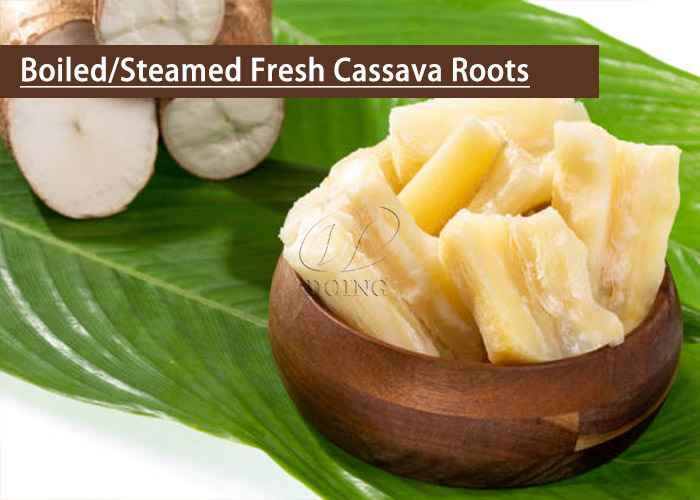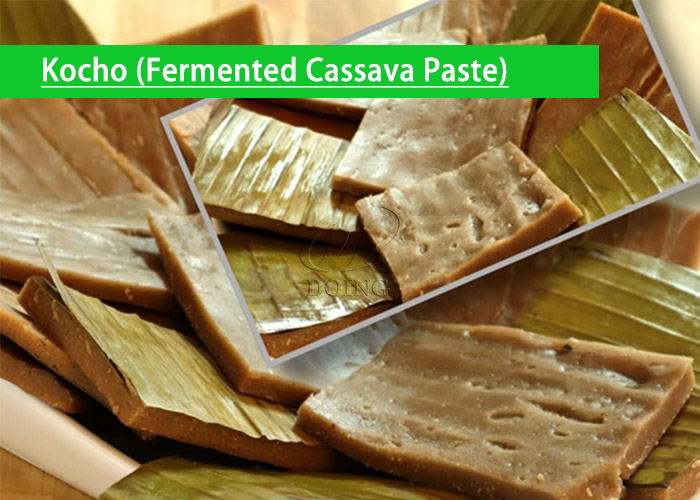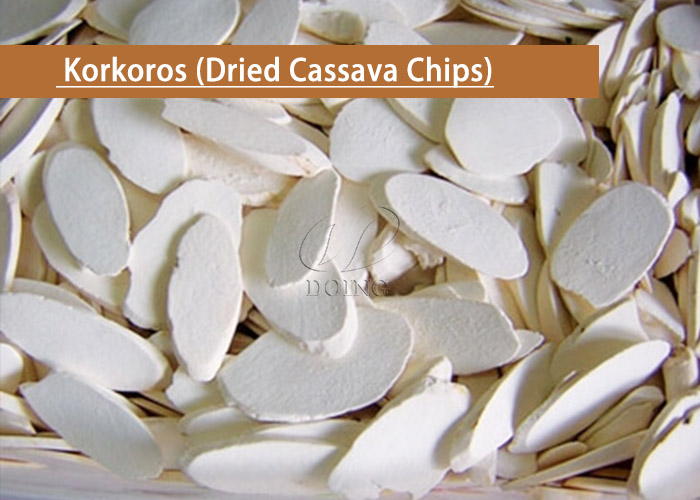Blog
 2025-08-15
2025-08-15Cassava mainly grows in the southern and southwestern regions of Ethiopia. In these areas, cassava represents high economic values by deep processing into versatile products like Kocho (fermented cassava paste), dried cassava chips (Korkoro), cassava flour (Muk or Bula),etc. Next we will introduce these popular cassava products for you who seek profit by processing cassava in Ethiopia.
Boiled/Steamed Fresh Cassava Roots:
This is the simplest and most common way to consume cassava, especially in Ethiopian rural areas (Southern Nations, Nationalities, and Peoples' Region). The roots are peeled, chopped, and boiled or steamed until soft. They are often eaten as a starchy side dish.
 steamed fresh cassava roots
steamed fresh cassava roots
Kocho (Fermented Cassava Paste - similar to Enset Kocho):
Particularly in regions like Wolayita and Sidama of Ethiopia, the cassava roots are peeled, grated, pulped, and then fermented in pits for weeks or months. This fermented paste, called kocho, is then baked into flatbreads or cooked as a starchy porridge.
 kocho
kocho
Konjo & Korkoros (Dried Cassava Chunks & Chip):
Cassava roots are peeled, chopped or sliced, and sun-dried into hard chunks or chips (korkoro). These serve as:
Long-term storage: Preserving the harvest for times of scarcity.
Cassava Flour production: The dried cassava chips are later pounded or milled into flour (see below).
Snacking/Boiling: Sometimes eaten as a snack in their dried state (though very hard) or dehydrated and boiled.
Recommended Watching: Small and large cassava chips making machine running video
 korkoros
korkoros
Muk or Bulla (Cassava flour):
Made by milling the dried cassava chunks and chips. Cassava flour is used in several ways in Ethiopia:
Injera Ingredient: Most significantly, it's used as a partial substitute for teff flour in making injera, a Ethiopian sourdough flatbread.
Porridge (Genfo/Bula): Used to make thick porridge, similar to those made from other grains like barley or oats.
 muk or bulla
muk or bulla
Thickener: Used as a thickener in soups and stews.
Baking: Increasingly used in bakeries for bread, biscuits, and other baked goods, often blended with wheat flour.
If you want to learn more about cassava products in Ethiopia, just chat with us! Henan Jinrui, as a professional cassava machine manufacturer, knows local market very well. And we can offer you some advice on improving cassava added values, investing cassava processing business, and choosing suitable equipment, etc. Look forward to chat with you!
Recommended Reading: Completely automatic cassava flour production line
Want to know more about our products or services? Fill out the contact form below, and we’ll to get back to you and you will get the price list. Please also feel free to contact us by email or phone.( * Denotes a required field).